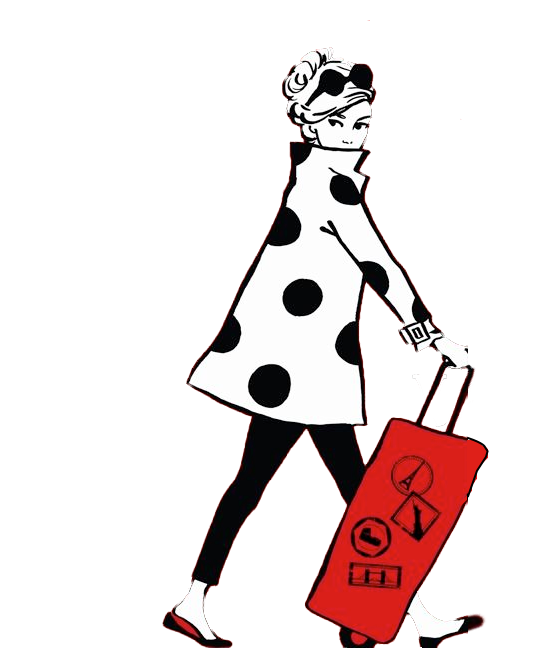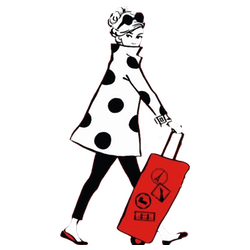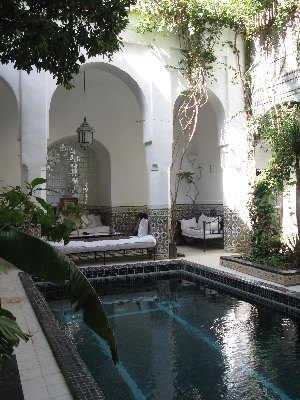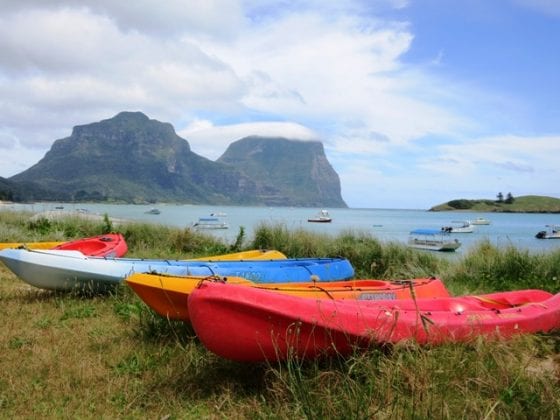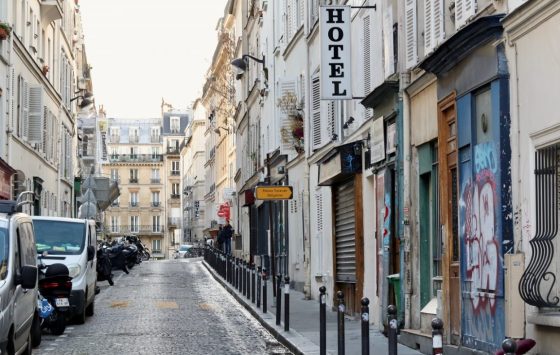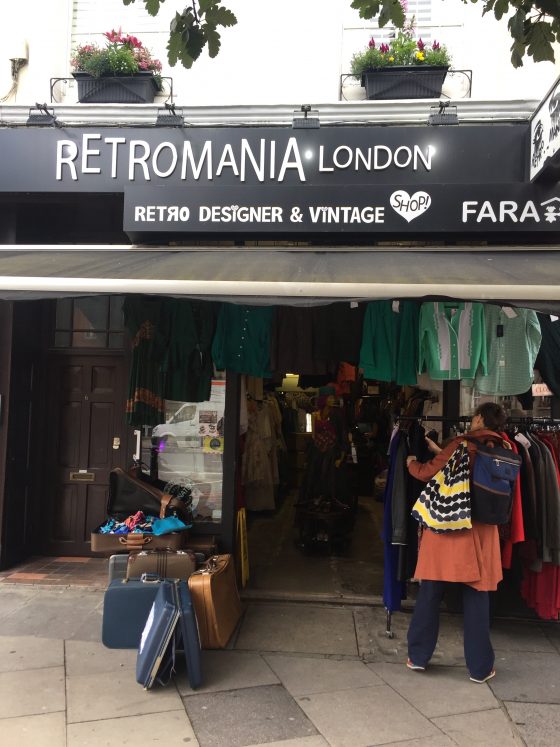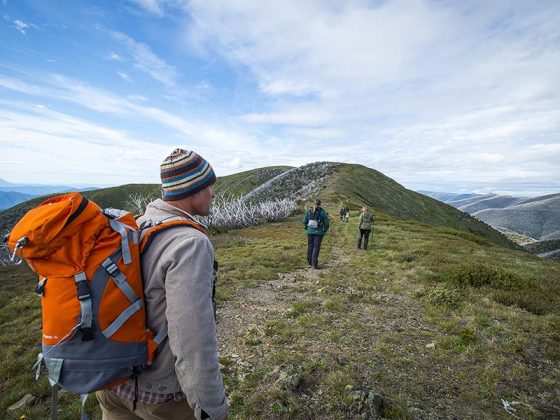Julie Moline happily submits to volcanic muck – and a massage by a sturdy grandma in sensible shoes.
 When the wake-up call came it was still dark out, and I was so startled that my hand shook as I picked up the receiver. The voice on the other end was ebullient. “Buongiorno, signora!” he cried. “Fango! Fango!”
When the wake-up call came it was still dark out, and I was so startled that my hand shook as I picked up the receiver. The voice on the other end was ebullient. “Buongiorno, signora!” he cried. “Fango! Fango!”
It was 4:40 a.m. I had five minutes to get to the spa’s treatment area, a warren of rooms lining both sides of a long, flesh-colored hall with a barrel-vaulted ceiling. I grabbed the white robe off the hook (don’t take the green one. I’d been advised by the redoubtable Hannerle, a frequent guest, they get annoyed when you do that) and went downstairs.
In the middle of the long hall was a demilune desk with a set of room keys lined up neatly on top. “Buongiorno, signora,” said the man in charge — who must already have been advised that I spoke neither Italian nor German, because he dramatically gestured the way to the waiting area. There several pale, expressionless, 70-something men sat in their white robes, clunky plastic shower shoes drawing my eyes down to their hairless, fragile ankles.
The only movement came from a woman in a tight uniform and a single rubber glove, preparing a room for the next fango treatment. Her bare forearm was slim. The gloved one was twice the size. I soon found out why.
A fango treatment involves 10-20 minutes of schvitzing atop a hundred or so pounds of volcanic muck, dredged from the foothills of the Italian Alps and mounded into place by hand for each guest. Montegrotto, about 45 minutes by train from Venice, is famous for the quality and temperature of its mud; at the Spa Terme Apollo, the fango lies in wait in a special fenced-in area behind the hotel before being transported inside on trolleys by men who look like orderlies in a soap-opera mental ward.
This is not the chocolate-hued mud of childhood pies. Imagine battleship-grey, smooth and steaming turds that make primordial sucking and plopping noises as you are eased down onto the pile. Then you’re shrouded in sheets, and, if you know to ask, a washcloth full of ice is placed on your chest.
Every few minutes the attendant—mine was named Veronica—comes in to dab your brow, reposition the washcloth (whose contents shift as they melt) and check to see if you’re coping with the combination of intense heat and swaddling. Some guests who can’t take it, reported Hannerle gleefully, tear their sheets off and run down the hall, naked and trailing steam, howling for help.
The fango is an intensely bizarre, and intensely relaxing, experience—a sauna magnified, say, five-fold. Afterwards you’re washed down with a high-pressure spray of hot water before being lowered into a cool whirlpool for 10 minutes.
(Atop the mud all I kept thinking about were tamales, steaming away in their husks; after the cold dip, I switched to blanched haricots verts shocked in an ice bath.)
What could possibly be next, I wondered that first morning. But all I got from Veronica was “Prego,” as she closed the door behind her. I put the robe on and went back to the desk. Another grand series of gestures, this time leading me down the hall, where on either side, several men in white lab coats sat on benches, staring at the floor.
One rose as I neared. I followed him around a corner. He pointed his cigarette toward a cubicle, bare except for an examination table covered in paper. “Relaxen,” he ordered, then left me. I obediently complied. The coughs of the German in the adjacent cubicle made a phlegmy, and not entirely unpleasant, counterpoint to the caterwauling of Enya on the sound system.
I was drifting back to sleep when another staffer touched my toe and motioned for me to follow him back to the staging area. Then it was time for a brisk massage by a sturdy grandma in sensible shoes.
I have never felt better.
I have also never felt so young.
I don’t mean rejuvenated from the spa experience, although the treatments were, once I got used to them, restorative. And I don’t mean chronologically young, even though I was 25 years younger than most of the other guests. I mean that the inability to communicate with any linguistic precision brought me back to early childhood.
My interaction with the spa staff was managed with methods the average toddler could understand: pointing, nodding, gesturing, mimicking, following. In the shower after the mud treatment, Veronica muttered, ‘angele’, and I thought, ‘angel’? Is this the Italian equivalent of ‘honey?’ before I computed ‘angle’—but only after she physically positioned me to face the corner. Being naked and led by the hand to a shower and having no clue what to do, if anything, next: Yes, I thought, this is what it’s like to be two.
But toddlers don’t get charmed by sommeliers, or succumb to the siren song of the cheese cart. European spas aren’t about dieting and denying; they’re about decadence.
Or at least the 3-star version thereof. Montegrotto isn’t Baden Baden, and the Apollo’s decor is utilitarian rather than sumptuous. But there is a dance band every night, wheezing out polkas and waltzes on an accordian, and while there’s no deer park, or knot garden, or parquet-floored ballroom, there are some posh features.
The concierge is a member of the Société des Clefs d’Or. There are five Olympic-sized swimming pools, each a different temperature. There’s an electric swimsuit dryer, surely a Teutonic invention, in the dressing room. And then there are the fluffy green robes, as thick as velvet shag carpet, which are so dear to the spa management that they aren’t allowed anywhere near the mud.
But the real reason to go to the Apollo is, ironically, the food. Ostensibly you go for your health, and the inhalation therapy rooms, acupuncturists and doctors with stethoscopes draped around tanned necks are credible evidence that there’s medicinal value in a stay. But what to make of the five-course lunches and the seven-course dinners, held in a dining room that could double as a set for The Love Boat?
True, there were calorie counts on the menu, but no one seemed to be going for the cuisine minceur; they went for the paté, the gnocci in cream sauce, and the roast suckling pig. One night, after long, languid meal, the lights were dimmed, and two enormous baked Alaskas were trotted out on silver trays by a parade of waiters holding a candle in each fist. The chef, immaculate in his whites, got an ovation. He’s the alpha male at Spa Terme Apollo, not the Fabioesque trainer in the aerobics room.
The fuss over the entrees, meticulously described in a daily menu, the lengthy wine list, the dishes prepared à table in copper chafing dishes, the care with which the guests bedecked themselves—in smart sportswear by day, in eveningwear for dinner—is a far cry from the restaurants at spas in the States, where guests eat in t-shirts and flipflops and aren’t tempted to linger over two-inch-square brownies where the butter has been replaced with prune puree.
It’s a philosophy I aspire to share with these fango fans from Germania: Quit stressing over net carbs and fat grams. It’s bad for your health. And no matter how shamefully you indulge when the cheese cart pulls up by a waiter named Gianluigi, you can always sweat out the damage at 4:45 the next morning.
